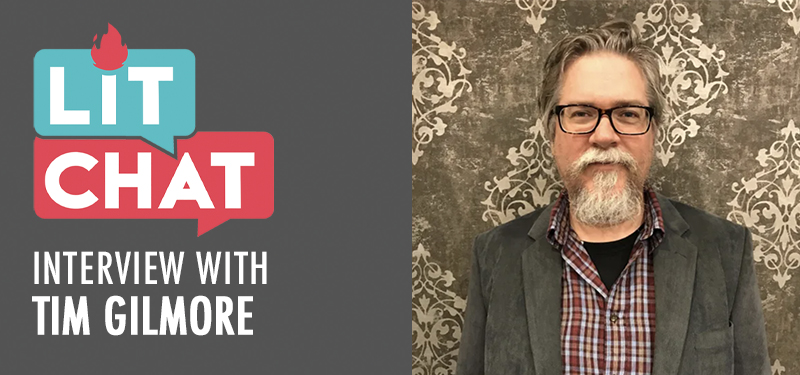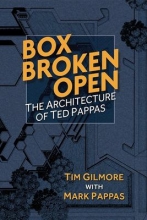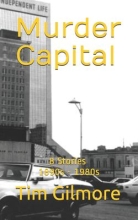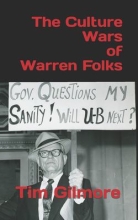
#The Spirit of Place
Tim Gilmore is a prolific local history author who has written extensively about Jacksonville. As the writer and creator of www.jaxpsychogeo.com, a project that explores place and catalogs the Southern Gothic, he has told more than 700 stories of strange and historic locations in and around Jacksonville, Florida. He has also published 22 books.
"Ever since UNF English Professor Alex Menocal introduced me to the concept of psychogeography years ago, I’ve been enthralled with it," Gilmore says. "It’s a portmanteau word, the psychology of geography, [meaning] something like the spirit of place. It’s where the name for my website, jaxpsychogeo, comes from."
Gilmore seems equally fascinated with Jacksonville and its people. He is also the founder of JaxbyJax. A literary arts festival, now in its 10th year, JaxbyJax was built on the theme of “Jacksonville Writers Writing Jacksonville.” Few writers have written about Jacksonville more than Gilmore.
He joins us this November to talk about his latest book, The Culture Wars of Warren Folks.
JOIN
Lit Chat Interview with Tim Gilmore, Saturday, November 4 at 3 p.m. This event will take place live at the Main Library’s Ansbacher Map Room and will be live-streamed online via Zoom. Books will be available to purchase on-site or you can bring a copy purchased from your favorite bookseller.
Tim Gilmore has written 22 books including Box Broken Open: The Architecture of Ted Pappas; Murder Capital: Eight Stories, 1890s-1980s; Channeling Anna Fletcher; Repossessions: Mass Shooting in Baymeadows; The Book of Isaiah: A Vision of the Founder of a City, illustrated by Shep Shepard; Devil in the Baptist Church: Bob Gray’s Unholy Trinity; and The Mad Atlas of Virginia King. Four of the works he’s written for the stage have been produced by Florida State College at Jacksonville DramaWorks and his writing has appeared in numerous publications both locally and nationally.
JaxPsychoGeo has received mention in publications including The Miami Herald, The Washington Post and The New Yorker and was featured in the A24 book Florida! A Hyper-Local Guide to the Flora, Fauna and Fantasy of the Most Far-Out State in America.
Gilmore teaches Literature and Writing at Florida State College at Jacksonville. He’s received awards from FSCJ, the Cultural Council of Greater Jacksonville and Jacksonville City Council. He holds a Ph.D. in English from the University of Florida. You can also read his twice-weekly newsletter, Tim Gilmore’s deadpaper, at timgilmore.substack.com.
Interviewer Shep Shepard is a professor of English at FSCJ’s Nassau Center. He received his Ph.D. in English from the University of Florida and has worked as a full-time instructor at FSCJ for twenty years. In his spare time, he produces music under various monikers, edits fiction and nonfiction prose, creates digital art, and enjoys time with his wife Ana and their dogs Meka and Moxie.
READ
Check out Tim's work from the Library!
Box Broken Open: The Architecture of Ted Pappas
Jacksonville architect Ted Pappas often unites ancient tradition with contemporary vision. In addition to creating innovative new buildings, Ted Pappas has repurposed or rehabilitated historic structures in Jacksonville's urban core including the oldest historically black college in Florida, the state's oldest musical organization, the city's oldest library, oldest private club building, oldest school building, and oldest church structure.
Murder Capital: Eight Stories, 1890s-1980s
For at least the last century, Jacksonville has stood out nationally for its murder rates. Headlines call it "Florida's Murder Capital." The eight stories in Tim Gilmore's 20th book tell of Cuban Revolutionaries, of little-known serial killers (and one phony serial killer), of lynchings and Southern good-ole-boy corruption, of “Satanic Panic,” and of a white supremacist killer with a black male lover. These stories each stand on their own, even as they interrogate the long violent history of Florida, the Deep South, and the city where those two entities intersect.
The Culture Wars of Warren Folks
Warren Folks ran for everything from city council member to Florida governor from the mid-1960s through the mid-’90s. He associated with the likes of George Lincoln Rockwell, founder of the American Nazi Party, Alabama Governor and presidential candidate George Wallace, and J.B. Stoner, the Klan’s attorney, who defended the assassin of Martin Luther King. But it was his conspiratorial causes that frequently earned him national news coverage from his Downtown Jacksonville barbershop. Ironically, The Culture Wars of Warren Folks also tells important Black history including Ax Handle Saturday, Rev. Martin Luther King Jr. and the St. Augustine Movement, and Florida civil rights activists like Rutledge Pearson, Bob Ingram, and Robert Hayling.
Tim Recommends: Pyschogeographical Works
I’ve long been a huge Cormac McCarthy fan. I’ve assigned The Road to numerous classes over the years. Of all the McCarthy I’ve read, I most highly recommend The Road and two of his earlier novels:
- First, there’s the 1973 novel Child of God, which somehow manages to be one of the most horrifying things I’ve ever read and one of the most beautiful. Few writers could achieve that strange incongruous feat, perhaps none better than McCarthy.
- Meanwhile, his 1979 novel Suttree paints as detailed a picture of down-and-out Knoxville, Tennessee, as Joyce ever painted of Dublin. It’s perhaps the greatest American psychogeographical work.
When I recently read John Oliver Killens’ 1954 novel Youngblood, I couldn’t believe I’d not read him already. This novel, alongside Harry Crews’ newly reissued 1978 memoir A Childhood, has to be among the best writings ever to come out of Georgia. The two of them work like split-screen, a Black childhood and a white childhood, both so different and so similar. Both writers had ties to Jacksonville. Crews said mid-20th century Jax was the place poor Georgia farmers went when the crops failed.
Various artists and writers have used psychogeography in different ways. I’ve returned time and again to my favorite such writings, which I can’t recommend enough – novels like Peter Ackroyd’s Chatterton and Hawksmoor and Toni Morrison’s Beloved. On the face of it, Ackroyd and Morrison couldn’t be more different, but they both explore how culture is haunted by history and how patterns of history present themselves as ghostly. Then there’s Joseph Mitchell’s Joe Gould’s Secret, a nonfiction account of a homeless Greenwich Village icon who claimed to have written the longest book in the world.
Tim Recommends: Other Jax Authors
I’d be negligent if I didn’t give a shout-out to our local literary community, which runs so much deeper and wider than most locals realize and includes works like Julie Delegal’s Seen and Andres Rojas’s Third Winter in Our Second Country and Johnny Masiulewicz’s Happy Tapir zine series.
I could name dozens of other writers I admire and their works, but as soon as I attempt a long list, I’ll foolishly omit someone and lose a few nights’ sleep. (I already see 15 or 20 people in my mind’s eye whose names I didn’t mention, but could have, just now.)
Anyone who wants an extensive list of writers participating in the Jax community, just look at the archives for the last nine festivals at jaxbyjax.com. I’ll just say this is the 10th year of JaxbyJax Literary Arts Festival, which my wife Jo Carlisle and I founded and then relinquished to the more capable hands of Darlyn and Brad Kuhn.
Erica Saffer has taken it over for the 10th. Check it out Friday - Sunday, December 1-3.
Be the first to know about upcoming Lit Chat author talks and more!




